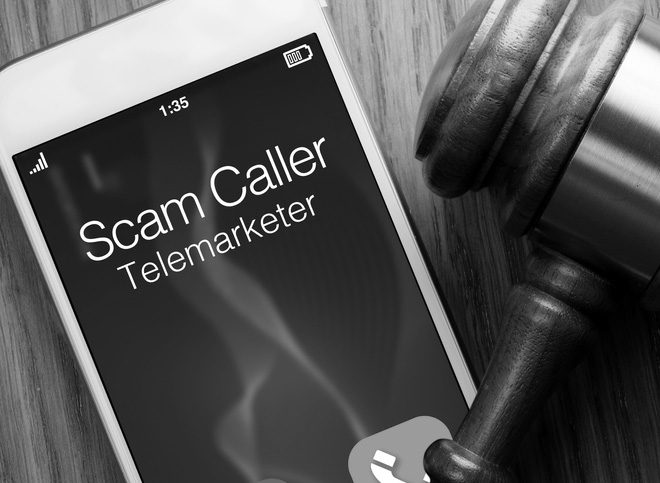Looking for help with illegal automated robocalls or robotexts? Normand PLLC has experienced attorneys ready to assist you.
Are automated Robocalls Legal?
Have you received those annoying automated calls or texts? Or even a phone call from a number that’s EXACTLY like yours or very similar? Robocalls are a common nuisance that many Americans face nearly every day. These are often phishing attempts to steal your personal information, make you believe you owe money, or are part of a marketing campaign. If you did not consent to being robocalled most are ILLEGAL.
The Washington Post is reporting, however, that now hospitals and medical centers are being targeted by thousands of robocalls that flood the phone lines and disrupt daily operations. For example, one medical center in Boston reportedly registered more than 4,500 calls between a two-hour period, crippling communications.
It doesn’t end there, these callers may even “spoof” their number to look like the hospital’s number to deceive you and tell people they owe money. A medical facility based in Tampa has reportedly received over 300 calls that appeared to be coming from numbers that are affiliated with the U.S. Department of Justice!
Even with top telecom providers and the Federal Communications Commission increasing their efforts to stop spam callers, robocalls have clearly been on the rise. Does this mean that you’re at the mercy of these robocalls? Absolutely not. Here are some guidelines to help you deal with these robocalls.
You Have RIGHTS!
Consumers have options to fight back including the remedies found in the TCPA. TCPA is short for the Telephone Consumer Protection Act. The TCPA restricts telemarketing certain phone calls, text messages, and facsimiles.
It also places restrictions on the use of automatic dialing systems and artificial or prerecorded voice messages. Collections’ actions by phone are also regulated under the act. Consumers may file complaints with Federal Communications Commission (FCC) when TCPA is violated. Since TCPA law governs consumer rights, lawsuits may also be filed by consumers who suffer violations.
How Does the TCPA Work?
The TCPA is a strict liability statute. If you are getting these robocalls and robotexts from companies who you have not consented to have calling you, then you are entitled to statutory damages for each call. The minimum fine for each call is $500 and the maximum is $1,500.
When multiple calls have been made you receive the statutory damages for each call. Have you ever received calls or texts to your cell phone where they asked for someone other than you? These “wrong number” calls are a real nuisance and we want to help stop them.
They have to pay you for every wrong number call. We bring lawsuits for these wrong number robocalls to get you money awards. We have experience bringing both individual and class action claims under the TCPA. Contact us today if you think you might need us to be your TCPA lawyer. We Have Experience To Help You Turn Calls Into Remedies For You.
Steps You Can Take
Federal Communications Commission (FCC) and Federal Trade Commission (FTC) Guidelines for Robocalls
A robocall trying to sell you something is illegal unless a company has your written permission (paper or electronic) to call you that way.
However, not every robocall needs your permission. Here are some robocalls that don’t require your permission:
- Messages that are purely informational – Robocalls about a flight cancellation, appointment reminder, delayed school opening, etc.
- Debt collection calls – A business using robocalls to collect a debt is allowed, but robocalls trying to sell you services to reduce your debt are not.
- Political calls – Only permissible when made to landline telephones.
- Calls from some health care providers – For example, a pharmacy can contact you to remind you to refill your prescription.
- Messages from charities – Charities hiring a 3rd party to use robocalls can only contact members of the charity or previous donors.
- Market research or polling calls to home wireline numbers – Rules require caller to identify themselves at the beginning and include a contact number.
Register for the National Do Not Call List
The National Do Not Call list requires telemarketers to remove your number from their call list and must stop calling you within 31 days from when you register. Visit donotcall.gov to register your number.
Do Not Call rules only apply to telemarketing calls.
Tax-exempt, non-profit organizations, political organizations, pollsters and survey takers, and religious organizations do not have to comply with do-not-call requests.
If you are the victim of illegal robotexts or robocalls and texts, then contact our office for a free consultation. Fight for your rights and receive fair compensation! You can call or email us today for a free evaluation of your case. We take TCPA cases on contingency: there are no fees unless you win.
Give us a call for a free consultation.
